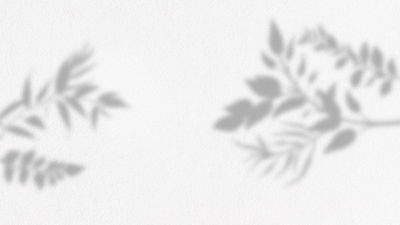
You are reading
Lebanon 1998
A case submitted by
Mary Moussa-Rogers
It was 1998, I was in my sister’s room, and she was showing me pictures of her trip to Lebanon from that summer. Her first trip with our uncle, grandparents, and cousins. Our father had never taken us after he fled the war in 1977. Our mother, also Lebanese, had never gone as she was born in America, like us. Pictures of her and my cousins who traveled with her from America and my cousins living abroad littered her bed.
I laughed as I looked at a close-up picture she had taken underwater of our cousin Ziad. He was making a silly face, and although the picture of his face was blurry, the water was crystal clear. She said that Lebanon was one of the most beautiful places she had ever seen. Bahar, the sea, a place you can see in Lebanon from most anywhere as the hilly mountains only descend until you arrive at the Mediterranean.
When we went to Myrtle Beach that next summer, I planned to do something similar to my cousin in the photo. I imagined myself being able to open my eyes under the water and see clearly when I wasn’t in a pool, but the sea was a murky green and my eyes stung. I wondered if it smelled as strongly of sunscreen in Lebanon as it did here.
When talking about her time in Lebanon she described having to go collect water for their showers. She talked about a water source that didn’t just come out of the pipes, but came from an actual water source, Al Kef, the waterfall, which was diverted through aqueducts in the village. They could walk up and down the road and see the beautiful mountains all around them and when they looked to the west, Bahar, beckoning to them.
Everything she described from that summer sounded so magical. She talked about sleeping on the roof of our grandparents’ house in the village. I closed my eyes and imagined as she described seeing more stars than she had ever seen in her life. She said she saw a shooting star. I was dazzled thinking about a night sky littered with bright lights. It felt like she was describing a place closer to heaven than I had ever been.
It was 2023, I was finally visiting Lebanon for the first time in my life. My aunt was immediately apologetic. Zbele, the garbage that littered Beirut. “They no longer have functioning trash service,” she explained, “because they have no government.” My cousin is also immediately explaining, “you shouldn’t go swimming in the sea, it isn’t safe any longer.” They’ve been dumping into the Mediterranean, but not just Lebanon, the countries who have paid Lebanon to let them dump their trash and waste there too.
I stare wistfully at the Bahar, as we sit next to a pool. It still looks clean, a beautiful, brilliant blue, but my cousin is right, few people are swimming in it. It crashes against the rocks, and I notice a trash bag swirl. I still think Lebanon is the most beautiful place I have ever seen.
We are hiking with a distant relative, we hike up a road and pass a sign that says “DANGER MINES” in English and Arabic. We pass it to continue on the hike. Some of the trees on this hike have been regrowing from the past 60 years, but there is little shade from the hot sun. I, and multiple others, almost overheat, it is a record high heat with no cloud cover in Lebanon. It is on record as the hottest month in the world since 1880.
We are visiting my mom’s family in my grandmother’s village; we are in a fruit orchard eating outside. The breeze is perfect, and we are overlooking the sea off in the distance and the sun is setting. I go to take a picture and my distant cousin laughs, embarrassed. “I don’t even see it anymore,” she says, she implies it just makes her think about the state of her country. We talk about the haze covering the sky. Most electricity is produced by generators right now because of the lack of infrastructure, the sky retains a hazy film now. The people adapt, but the environment suffers. I still think Lebanon is the most beautiful place I have ever seen.
We are now in Bayya’s, my Dad’s, village. My cousin Ziad, whose younger face I have etched in my memory from a picture underwater, tells me how he and his brother pivoted and have learned to install solar panels basically overnight. Lebanon is going green out of necessity for electricity. Our Aunt’s house runs almost entirely on it with just a backup generator. It is a hot dry summer, Al Kef is basically a sprig of water, but they now have a piping system for water installed into houses. I take a shower without going to collect the water myself, but we hike up the waterfall anyway and sit by a pool that is a murky green color with an empty bag of chips floating atop.
It is nighttime. We are in my Aunt’s beautiful home that she and my cousins’ designed and built. There is a balcony that we peak out of at night. There is a club on one of the neighboring mountains that blares music and spotlights. The sky is beautiful, but dimmed by haze and light pollution. We take a picture and manage to capture the milky way. I see no shooting star, but I still think Lebanon is the most beautiful place I have ever seen.

